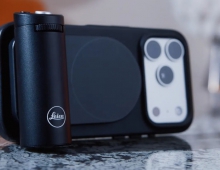
Qualcomm Disagreed With Apple Over iPhone Modem Software Disclosures: report
Apple and Qualcomm discussions over modem supplies for the latest iPhones may have collapsed over a squabble about software access.
According to internal emails seen by Bloomberg, Qualcomm was concerned that the company's proprietary software that was inlcuded in Qualcomm's modems could leak to third parties by Apple, in case Qualcomm agreed to sell modem chips to the iPhone maker.
In a 2017 email sent to Qualcomm's CEO Steve Mollenkopf, Apple executive Jeff Williams promised that Apple would not leak key Qualcomm computer code needed to customize modem chips -- something the chipmaker had accused the iPhone maker of doing. The chief operating officer also offered to "firewall" engineers using the software.
"In my wildest imagination of some evil intention of Apple, I have trouble coming up with a real scenario where anything of significant value could be leaked based on this code," Williams wrote in September 2017.
"I just hope the licensing dispute doesn’t cloud good judgment in the team on a massive business opportunity," he added, noting that Apple planned to order about $2 billion worth of chips from Qualcomm for 2018. "I was hoping to keep some decent quantity of business flowing with hopes that the licensing stuff will get solved."
Mollenkopf replied that his main concern was about protecting Qualcomm’s proprietary information and that he hadn’t seen much action by Apple in response to earlier complaints from Qualcomm on that issue. "This is independent of our license dispute," the CEO wrote.
Mollenkopf offered to provide the software access Apple needed. In return, he asked for a commitment from Apple to use Qualcomm modem chips in at least 50 percent of iPhones over two years, according to the emails.
The email exchange suggests that Qualcomm and Apple were arguing over software, rather than the licenses at the center of their bruising legal battle.
Williams testified in court earlier week (FTC Vs Qualcomm case) that he spoke with Mollenkopf about the chip supply issue over the phone. Williams said Qualcomm refused to supply Apple with modems after it sued the semiconductor company. He said he contacted Mollenkopf by email and phone to try to persuade Qualcomm to supply chips for 2018 iPhone models.
“We tried to get them to sell us chips, and they would not,’’ he told Judge Lucy Koh who’s presiding over the bench trial in San Jose.
In the end, Intel became the sole provider of iPhone modems. Qualcomm then sued Apple, accusing it of using its software to help improve the performance of Intel chips.





















